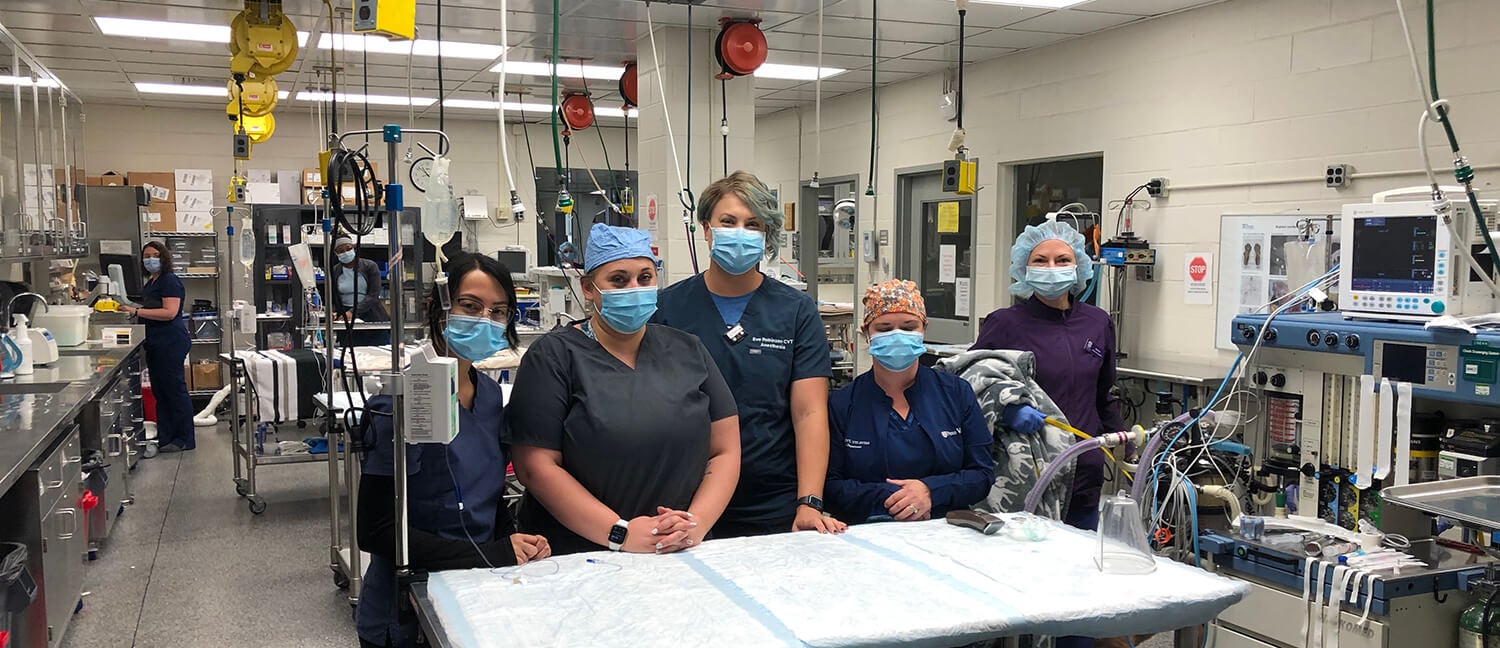
Veterinary Nursing
At Ryan Hospital, we are renowned for our clinical excellence, commitment to teaching, and dedication to innovative research. We manage the most intricate cases involving small animals in the region, and our outstanding reputation hinges on our devoted team of certified veterinary technicians (nurses). Each member of our nursing staff has successfully completed a veterinary nursing program at an AVMA accredited college, passed a rigorous national exam, and has acquired state certification to practice. As one of the nation’s premier teaching hospitals, we highly value the dedication and commitment these nurses have shown to both their personal growth and the advancement of their profession.
Within each department, our veterinary nurses have a unique opportunity to further specialize their expertise by pursuing specialty certification (VTS) in their respective fields of veterinary medicine. This elevated expertise level brings added responsibilities such as delivering lectures, educating others, conducting independent nurse practitioner appointments, and crafting nutritional or anesthesia plans. We take great pride in the many technician specialist nurses who have dedicated themselves to their passions in emergency and critical care, anesthesia and analgesia, dentistry, internal medicine, and nutrition. Some of these nurses were trailblazers who spearheaded the development of nurse specialty certification as it stands today.
As a leader in veterinary education, Penn Vet has long recognized the integral role of the certified veterinary technician in the delivery of quality veterinary care. Our mission is to prepare the future leaders in the field of veterinary medicine, which includes our commitment to veterinary nursing students. Since 1975, we have partnered with Harcum College to facilitate veterinary technician education, contributing to the growth of a substantial number of accomplished veterinary nurses who have proudly made significant contributions to our profession.
Being a Penn Vet Nurse
To be a Penn Vet nurse is to embody the essence of compassion, dedication, and unwavering commitment. Every day presents an opportunity to make a profound difference in the lives of our patients, and by extension, the people who love them. It’s about embracing the highest standards of veterinary care, continuously expanding one’s knowledge, and showing boundless empathy. It’s a calling that demands resilience, patience, and an unshakeable belief in the power of healing.
Join Our Team!
Are you interested in working at Ryan Veterinary Hospital? We’re hiring!
Ryan Veterinary Hospital
Emergencies:
(215) 746-8911
By Appointment:
(215) 746-8387
